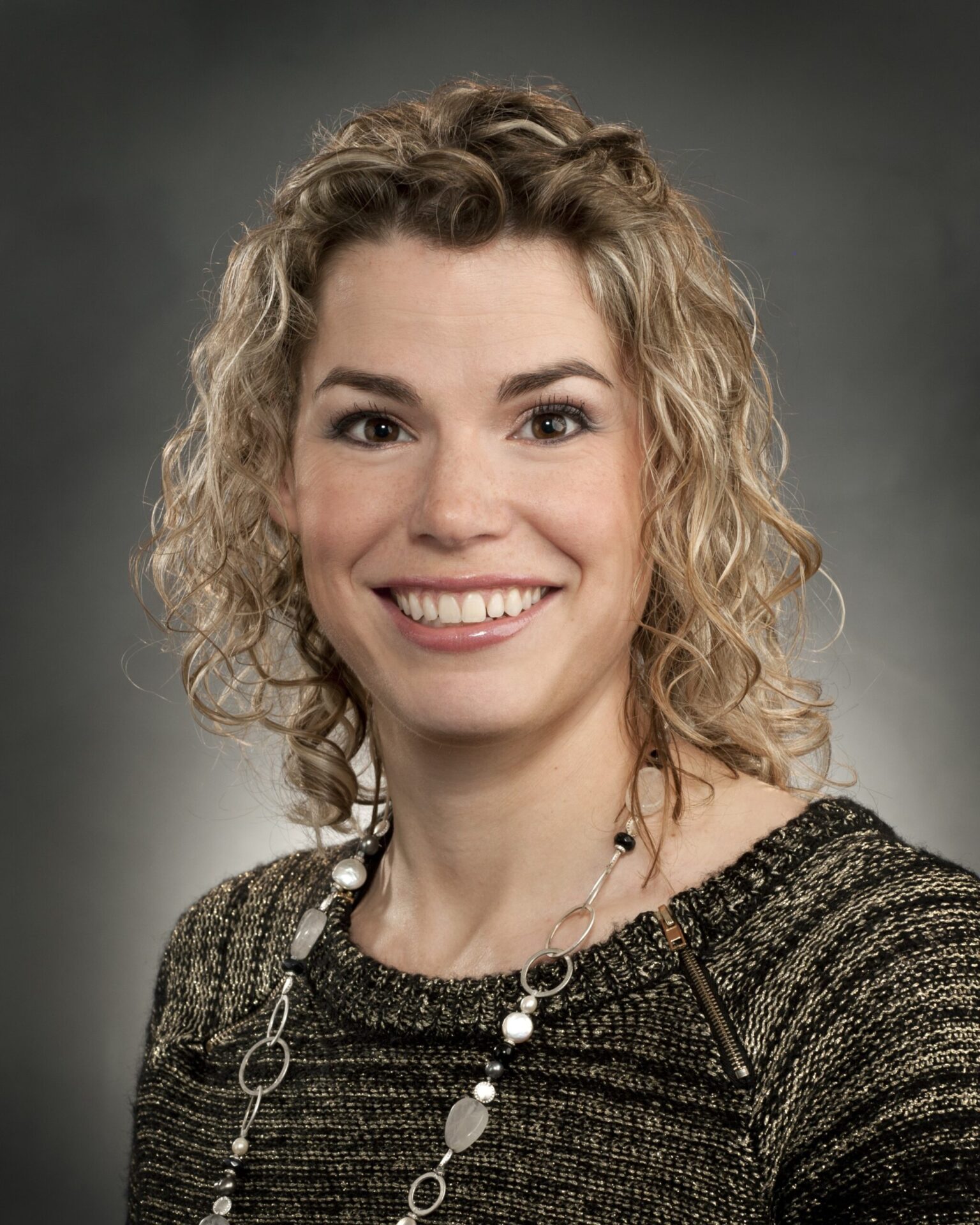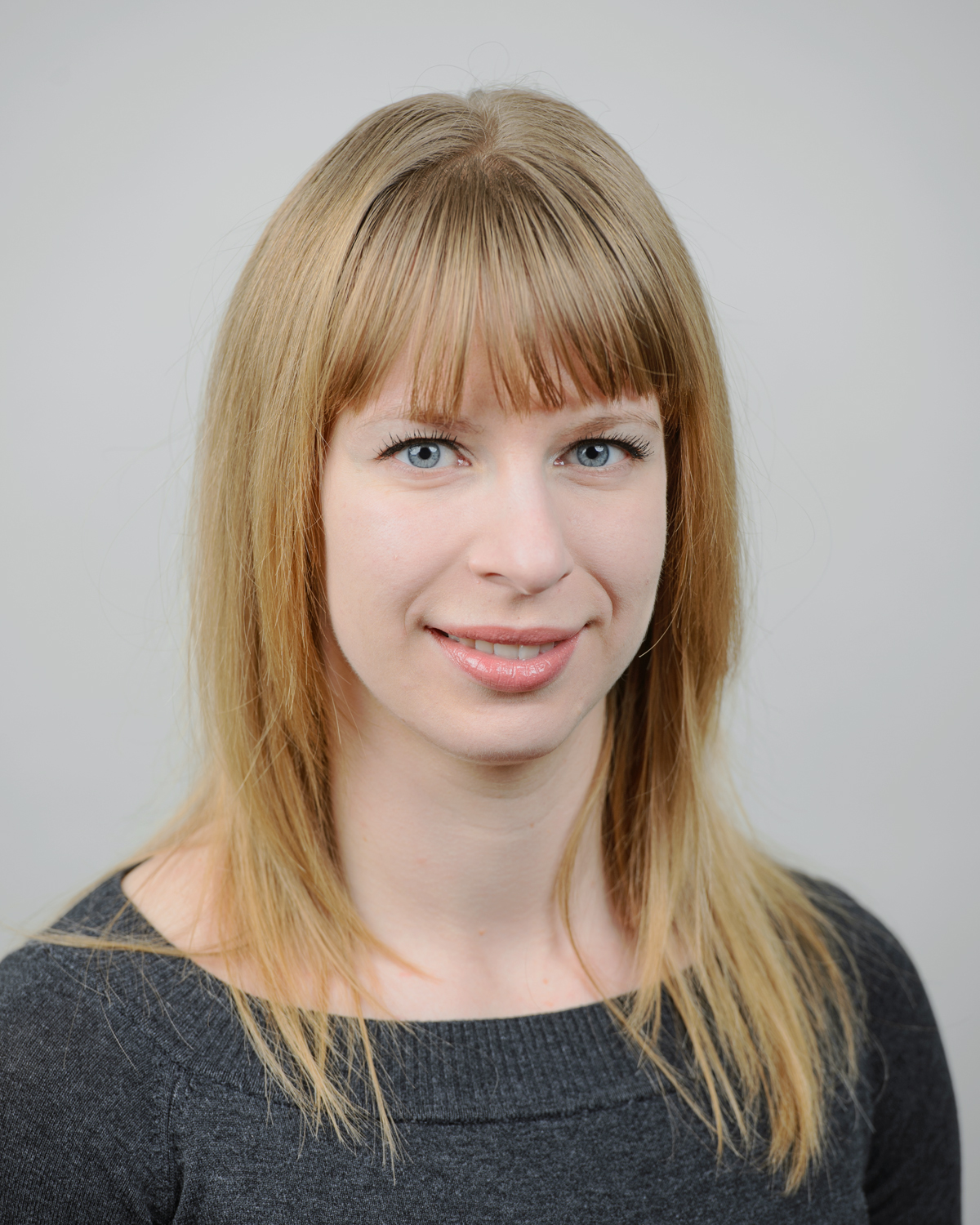
"I think that to attract and retain more women in engineering we need to get the message out there that you don’t need to change yourself to fit into this mold so to speak, you can be exactly who you are and be an engineer."
- JACLYN MANN, P. Eng., Senior Manager, Energy, CIMA+
To celebrate International Women in Engineering Day, what could be better than presenting inspirational role models and leaders in their field to spark interest among the next generations. To mark this important day, two engineers working in the energy sector in Saskatchewan took the time to discuss the engineering profession. It is our great pleasure to introduce Jaclyn Mann and Anastasiya Shved.
Jaclyn: Why did you choose engineering?
Anastasiya: I think the deciding factor for me to join the engineering program was my dad pointing out that this is something I can do as a profession and be good at it. In hindsight, I was surrounded by engineering work and projects throughout my upbringing. Both my parents are engineers and while I didn’t really understand what they did at work, my mom sewed a lot at home, and I could see her developing sewing patters, adjusting them to fit properly, calculate the fabric requirements, maintain and repair tools and, of course, execute work efficiently. My dad had a more traditional “engineering” involvement in the household, usually troubleshooting car and house maintenance problems.
So, when it came time to talk about post-secondary education, my dad asked why I wouldn’t choose engineering and I thought to myself, “why not?” I think it was his confidence in my abilities that helped me see it as a viable and enjoyable option. And the more I was immersed in my engineering studies, and later in my work as an engineer, the more I realized that this really is my cup of tea. I would also like to point out that my sister and brother-in-law are engineers too, so it truly runs in the family.
Jaclyn: I had no idea what I wanted to do and didn’t want to be pigeonholed into one certain type of work, so I chose engineering because I felt that it gave me a lot of options. I didn’t even know if I would like engineering but I just thought I would give it a try. I had a scholarship and was able to play volleyball at university. So, I thought, “engineering is as good an option as any and if I don’t like it, I will switch to something else” but I ended up enjoying it. Afterwards I realized that there are a lot of different ways to be an engineer; you can be a hardcore design engineer, an operations engineer, a field engineer, a manager, and even be a consultant. It was the variety of streams that you can go into that drew me to engineering originally.
School prepares you to think and act in a certain way and that’s what I thought I had to do when I got out of school, but it just wasn’t me and it didn’t feel right. What I have learned over the years is that I can be myself and lately I have been speaking my truth and acting the way that feels right to me. It’s interesting because I am finding out that I think very differently than a lot of engineers I work with and that’s not a bad thing. It creates a lot more diversity and it also encourages other people to bring up their ideas that they thought might get shot down because it didn’t fit the mold. This actually creates such a better result in the end.
I think this is what women can bring to engineering; flexibility, collaboration, different ways of thinking and different ways to problem solve. Instead of the traditional method where you feel like you need to find the answers and solve the problem by yourself. My approach is to go and find the people who I need to come up with an answer and collaborate to see what will work best for everyone involved. This approach has been very successful.
Anastasiya: I can certainly relate to that as well. It’s funny, a lot of times I think I am bridging the gap. I certainly have found value in understanding that you don’t need to know everything, you just need to know who to call.
Jaclyn: I think that just takes so much pressure off.
Anastasiya: Exactly, and it also demonstrates to young engineers that we don’t need to jump over our heads, we need to be honest about what we do know and what we don’t know. The fact that we don’t know everything doesn’t minimize our abilities to find solutions and solve problems. It shows our honesty and our integrity, and this is crucial. The worst thing we want to see is somebody making something up or not being completely honest about what they truly know since it may lead us into bigger issues.
Jaclyn: With women in engineering, I think it makes it almost a safer space for people to admit they don’t know, for people to ask for help, for people to ask for someone else’s opinion. I’m sure a lot of men do that too but when I started I didn’t always feel comfortable saying those things or asking. It wasn’t until I started asking that I realized, “oh that person doesn’t know either”. It’s ludicrous for anyone to think that they would have all the answers to everything or be expected to. Even the smartest person in the world in rocket science probably doesn’t know a lot about environmental engineering and vice versa.
Anastasiya: Another piece of advice would be to build on your strengths. For a while I didn’t really know where my place was but after some time I realized what my superpower was, what I am really good at, and how I can use my strengths to achieve the results I want to achieve. So I think that it’s very important for everybody to find your ability, your spark, and what you’re really good at instead of blindly following what engineering is prescribed to be. It may take you a couple of years to do this, you may need to do different jobs and maybe somebody one day will point it out to you, because that’s what happened to me. One day, someone told me that I was really good at people skills and so I sat down and said, “well, all my life I wanted to be an engineer, why is having good interpersonal skills so important?” It’s because now I have that connection between engineering and people that I can deliver and make a lot of things happen. It was at that moment that I realized what my superpower was and decided to just go with it. I’m building up on it, I know where my areas of expertise are, I’m not shy about it and I don’t think that it’s inadequate.
Having your own niche and your own expertise really allows you to flourish in that environment. It also gives you a feeling of satisfaction and of being able to do everything to the best of your abilities rather than struggling through something that you don’t enjoy or are not really great at.
Jaclyn: I love that you brought that up because I agree a 100%. Like you said, we are all really good at something, we just need to figure out what that is and if we can apply that to our everyday role, that’s where we’ll really start to shine.
Anastasiya: I think that young people, and particularly young girls just need to understand that every skill, even their creativity skills, are important to the engineering profession. The most important thing is for us to educate people on the different possibilities the engineering profession offers.
Jaclyn: That’s such a good point and I think everyone is born with some form of creativity, it’s all within us. That’s really all engineering is, coming up with creative ways to solve problems and find solutions to issues that society, the world and the environment are facing.
When you break it down that’s really what it is. I think that to attract and retain more women in engineering, we need to get the message out there that you don’t need to change yourself to fit into this mold so to speak, you can be exactly who you are and be an engineer. I think that the biggest barrier we have to deal with is this perception of what it means to be an engineer, and how they are supposed to behave. We need to change that perception and allow more diversity in the “engineer persona”, what engineers do and what they enjoy because there really is a great deal of diversity.
Anastasiya: Absolutely. Be who you are. This is how you can fit into the profession and that’s the highlight of it, that’s what everybody needs to know. Just like anything else, I think this industry needs to grow and evolve.
Jaclyn: It’s not going to be done in the same way as it has been for the last 100 years. Even within the industry there are always new technologies, there are changing environments, changing hot topics and issues. With these changes I think that people who are in this role will change as well. I think that’s exciting. Hopefully, we can say that you and I will be among those who will drive the change.
Anastasiya: Absolutely.
About Jaclyn Mann
Jaclyn Mann, P. Eng., has 15 years of experience in the electrical utility industry. With a degree in Industrial Systems Engineering and a broad background in both the electrical distribution and transmission industries in Saskatchewan, her career has evolved from technical roles to leadership positions. Working with SaskPower for the first 15 years of her career helped her gain an excellent understanding of the various aspects and challenges of the electrical utility industry. Having recently joined CIMA+, Jaclyn is looking forward to applying her knowledge to the consultant side of the business.

About Anastasiya Shved
Anastasiya Shved, P.Eng. begun her professional career as Plant Engineer at the coal-fired power plant. With a degree in Industrial Systems Engineering she was eager to gain valuable hands-on experience by being involved in planning and overseeing maintenance activities, conducting equipment inspections and supporting day-to-day plant operation. She then expanded her responsibilities to new construction projects and commissioning activities, focusing on addressing deficiencies, among other duties. After 6 years of plant experience she took on an opportunity to join Distribution Standards group and is now utilizing her technical knowledge in materials to manage material defects and establish new material contracts, as well as interpersonal and technical skills to manage customer programs.